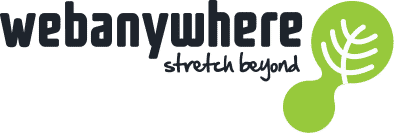Diversity and Inclusion Training

Acknowledging and embracing diversity is no longer a choice, but a fundamental necessity. The workplace, being a microcosm of society, must be reflective of its rich tapestry of cultures, backgrounds, and identities. Diversity and Inclusion (D&I) training serves as a critical foundation to foster understanding, respect, and unity within the workplace.
Understanding Diversity and Inclusion Training
Diversity and inclusion training is designed to educate individuals within an organization about the importance of valuing and appreciating differences among employees. It encompasses educating on various aspects of diversity, such as race, ethnicity, gender, age, sexual orientation, disability, religion, and more. The goal is to cultivate an environment where every employee feels respected, accepted, and empowered to contribute their unique perspectives and skills.
Legal Frameworks in the USA and the UK
Both the United States and the United Kingdom have recognized the importance of diversity and inclusion within the workplace, and their legal frameworks mandate training initiatives to promote equal opportunities and fair treatment. These regulations serve as a compass for organizations, guiding them towards creating a workplace that upholds the principles of diversity and inclusion.
United States:
In the US, various laws and regulations emphasize the need for diversity and inclusion training:
- Title VII of the Civil Rights Act: This federal law prohibits employment discrimination based on race, color, religion, sex, and national origin. Employers are encouraged to provide anti-discrimination training to ensure compliance with the law.
- Americans with Disabilities Act (ADA): ADA ensures that individuals with disabilities have equal rights and opportunities. Training on accommodating and treating individuals with disabilities equitably is essential for ADA compliance.
- Equal Employment Opportunity (EEO) Laws: These laws prohibit discrimination and harassment based on various factors such as age, gender, religion, and more. Training on prevention and addressing such issues is mandated.
United Kingdom:
In the UK, legal obligations and guidelines underscore the significance of diversity and inclusion training:
- Equality Act 2010: This act consolidates, updates, and supplements the numerous prior Acts that formed the basis of anti-discrimination laws in the UK. Employers are required to prevent discrimination, harassment, and victimization based on protected characteristics.
- The Public Sector Equality Duty (PSED): Public bodies and authorities in the UK are obliged to pay due regard to the need to eliminate discrimination, advance equality of opportunity, and foster good relations between different groups.
- The Equality and Human Rights Commission (EHRC): The EHRC provides codes of practice and guidance on promoting a diverse and inclusive workplace.
By adhering to these laws and regulations and implementing comprehensive diversity and inclusion training, organizations can create a thriving and harmonious work environment that benefits both employees and the business at large. In the subsequent sections, we will delve deeper into the significance of D&I training and the methods by which organizations can successfully implement these essential programs.
Navigating Diversity and Inclusion Compliance Training with Totara LMS
Fostering a culture of diversity and inclusion isn’t just an aspiration; it’s a fundamental requirement for success. It goes beyond moral obligations, positively impacting the bottom line, fostering innovation, and creating an environment where every individual can thrive. One of the key tools to drive this cultural shift is through effective Diversity and Inclusion (D&I) compliance training.
Let’s explore how Totara Learning Management System (LMS) can be utilized as a powerful platform to deliver engaging, informative, and comprehensive diversity and inclusion compliance training.
The Foundation of Diversity and Inclusion Training
Diversity and inclusion training encompasses educating employees about the importance of respecting and valuing differences in a diverse workforce. It addresses biases, stereotypes, and promotes an inclusive environment that embraces everyone, irrespective of their background, gender, race, or other unique characteristics.
Totara LMS: An Ally in Diversity and Inclusion Compliance
Totara LMS is a robust, adaptable, and user-friendly learning management system that can be tailored to meet the unique needs of diversity and inclusion training. Here’s how Totara LMS can play a pivotal role:
1. Customized Learning Paths:
- Tailor training paths based on roles, departments, or specific diversity and inclusion learning objectives. This personalization ensures that each employee receives training relevant to their responsibilities.
2. Rich Multimedia Content:
- Utilize diverse content formats such as videos, podcasts, infographics, and interactive modules to enhance engagement and cater to various learning preferences.
3. Assessment and Feedback:
- Implement quizzes, assessments, and surveys to evaluate understanding and measure the effectiveness of the training. Feedback mechanisms encourage continuous improvement.
4. Mobile Accessibility:
- Leverage Totara’s mobile-friendly design to ensure employees can access training materials anytime, anywhere, fostering a culture of continuous learning.
5. Integration Capabilities:
- Seamlessly integrate with other business applications like HR software, enabling a cohesive approach to managing diversity and inclusion initiatives.
Best Practices for D&I Compliance Training
- Leadership Commitment:
- Secure visible support and involvement from leadership to emphasize the importance of diversity and inclusion.
- Interactive Workshops:
- Supplement online training with interactive workshops to encourage dialogue, understanding, and empathy among employees.
- Scenario-based Learning:
- Utilize real-life scenarios that challenge biases and stereotypes, fostering critical thinking and understanding of diverse perspectives.
- Regular Updates:
- Keep the content and training modules up-to-date, reflecting evolving cultural norms and best practices.
- Feedback and Improvement:
- Encourage open feedback channels, enabling employees to voice concerns or suggestions for improving diversity and inclusion initiatives.
Totara LMS, with its versatility and adaptability, can be a powerful tool in creating an inclusive work environment through comprehensive diversity and inclusion compliance training. By embracing the potential of Totara LMS, organisations can foster a culture where diversity is celebrated, and inclusion is a way of life. It’s not just about compliance; it’s about embracing differences and thriving together.

